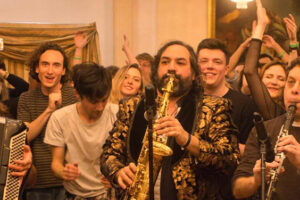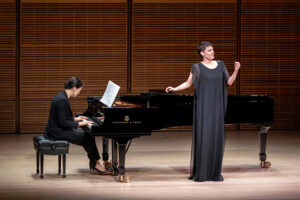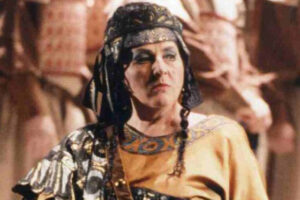

No one can deny that his voice is actually quite attractive, and that his high notes are fairly impressive. He is also generally on pitch and accurate. However, and this is one of the largest howevers I have ever stated, there are a myriad of problems with his approach: he croons and scoops, his sustained tones are largely shaky, there is little attempt at legato, color or phrasing and he has almost no ability to project character onto to the music.
You could say that his voice lacks training. You could also say that being stabbed in the gut stings a bit. To anyone with any sort of ear for technique or actual musical skill, it is simply unbelievable that he can get away with singing like this in a professional capacity.
In other words, he is a completely acceptable Don José for this day and age.
Joking: in fact, Bocelli’s newest vanity-project opera recording of Carmen shows him to completely unacceptable in the role. This is of course, no surprise. But, having never heard him in actual operatic action before, I didn’t expect how hugely deficient he is stylistically, dramatically and technically as an opera singer. No matter how high the engineers crank up the volume, it is a tiny, shaky voice without support.
What really made me want to use my stereo system as a projectile missile was his completely non-existing acting. Don José may be the most anguished and impassioned tenor role in the French repertoire (we’re not even going to talk about his French, by the way), and Bocelli sings it without a shred of dramatic interpretation. In the final scene, he doesn’t even sound mildly peeved. He might as well be singing about what he had for breakfast. Probably so he doesn’t have to act, all dialogue is cut to the absolute minimum, for which one can only be thankful.
His non-performance in the role is even more frustrating because with a different tenor in his place, this would actually be a fairly respectable recording of Bizet’s greatest opera. Myun-Whun Chung is on the podium and his energetic reading is an exciting one. He keeps things lively (the overture fairly explodes into being), and shapes the more lyrical passages with flair. Occasionally he goes to the extreme (the chorus before the entrance of the cigarette girls in act one is so slow as to appear almost frozen), but it’s an intelligent extreme. Under his baton, the Chorus and Orchestra of Radio France have an extremely happy day.
The opera is called Carmen and not Don José, and with such a deficient partner, the generally underrated Marina Domashenko stands out even stronger than she would normally. Her voice, on the heavy side for the part, isn’t the freest; like other Russian mezzos, she can be accused of having a thick, Slavic tone, and when the music moves fast she is often ungainly. However, she has made a career out of the role, and with good reason. Tremendously seductive and very fiery, she pumps every inch of the text with meaning. She is at her best in “Les tringles des sistres tintaient” and the card aria. The first of these is enchantingly caught up in the music; the second is a truly gripping interior monologue. She is not, perhaps not a totally ideal Carmen, but she is definitely worth a listen.
After Chung and Domashenko (thankfully the two most important elements in the performance) are discussed, the positives largely fade away. The largely Francophone supporting cast is uneven, ranging from excellent (Thierry Félix as Zuniga and Olivier Lallouette and Alain Gabriel as the smugglers), to subpar (Magali Léger as Frasquita) to terrible (Jean-Luc Ballestra, the worst Moralès I have ever heard).
Eva Mei is also not ideal as Micaëla. Her execution of both the French language is shaky, and her high soprano, which I’ve enjoyed in several bel canto roles, made me yearn for a slightly weightier sound. That being said, her phrasing of the aria is very well done, and she presents a fine contrast with Domashenko in act three, where she sounds convincingly young and out of her depth.
The most baffling name on the cast list is that of Bryn Terfel, who I assume needed to pay off a sizable gambling debt. He is not heard at his best. His Escamillo is exciting, intelligent and seductive, and the sound is as impressive as always, but he seems uncomfortable in “Votre toast,” which appears to lie awkwardly for him. The duet with Don José sounds be easier for him, but his voice is audibly pulled back and electronically quieted as to not completely overpower Bocelli. The role does not seem, on the whole, to suit him, but it is at least interesting.
Unfortunately, however interesting, well sung or well played the rest of the recording is, Bocelli’s mere presence knocks this Carmen completely out of the running as a worthy representation of the opera. I’ve enjoyed Bocelli in the right medium, such as Italian pop songs. But his presence here among this group of actual musicians, even some who are miscast or not at their best, can be likened to a duck attempting to be a canary. It just doesn’t work. Stick to being a duck, Andrea, it’s what you’re best at.























Comments